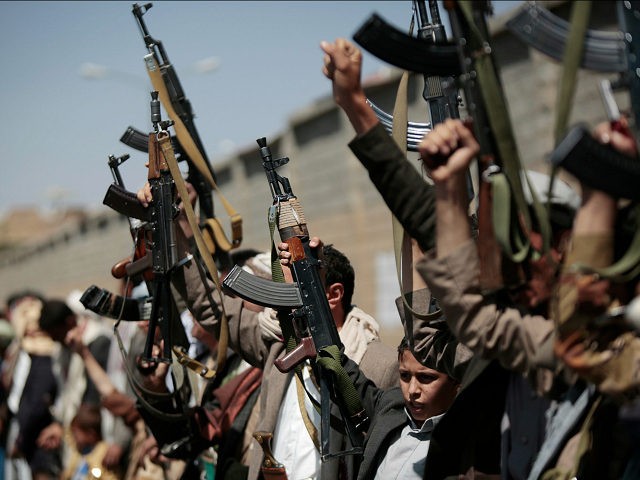SANA’A, Yemen (AP) — Violent clashes between rival factions in Yemen’s rebel-held capital continued Saturday for the fourth straight day as forces loyal to a former president and Iran-backed Shiite rebels known as Houthis faced off in the streets of Sana’a, signaling disintegration in the rebel alliance at war with a Saudi-led coalition for nearly three years.
Fighting since Wednesday intensified, according to accounts of local residents who said that loud explosions were heard overnight across the city and into Saturday morning. Mediation efforts by tribal elders and officials over the past few days have come to no avail.
“It’s been like a street war,” they said, adding that ambulances have been ferrying the wounded to hospitals. They spoke on condition of anonymity, fearing reprisals. There has been no official word on casualties but the International Committee of the Red Cross said that dozens were killed and hundreds were wounded in the fighting.
Over the course of the day, both sides claimed control of sensitive areas in the capital, including the airport but nothing was confirmed.
Amid the escalating violence, ex-president Ali Abdullah Saleh announced in a televised interview on Saturday with Yemen al-Youm that he is open to dialogue and is willing to open a “new page” to deal with the Saudi coalition after ending its blockade and ceasing fire.
The US-backed Saudi-led coalition has been fighting to defeat the Iran-backed Houthis along with Saleh’s forces in Yemen since March 2015. The coalition had also imposed a blockade on the country, allowing occasional humanitarian access, with the aim of reinstating the internationally recognized government of Saleh’s successor, Abed Rabbo Mansour Hadi.
The UN urged the coalition in a statement Saturday to “fully lift” the blockade on Yemen’s red sea ports saying that partial lifting only “slows the collapse toward a massive humanitarian tragedy costing millions of lives.”
Saleh, who led Yemen for more than 30 years, was deposed after 2011 Arab Spring uprisings that swept the Middle East. The country has since fallen into chaos and Saleh later joined the Houthis to drive Hadi out of the capital in 2014.
In his address, he also blamed Houthis for laying siege to the homes of several officials in the General People’s Congress, which he leads, and “storming” a mosque named after him. Broadcasting of Yemen al-Youm was stopped shortly after.
Officials working at the TV station say Houthis raided its headquarters. They spoke on condition of anonymity, fearing reprisals.
Earlier, the rebel-run Al-Masirah TV quoted a Houthi spokesman as saying that Saleh’s words are “a coup against the alliance and partnership.”
Seeing the strains in the rebel alliance, the Saudi-led coalition praised the General People’s Congress move to take the initiative saying this “will rid Yemen of the evils of Iranian militias,” referring to the Houthis in a statement carried by Saudi news agency SPA.
The coalition also said it realizes the GPC has been through “difficult times” during its alliance with the Houthis.
The Arab world’s poorest country suffered heavy losses due to the war which killed more than 10,000 people, displace over three million, pushed it to the brink of famine and contributed to an exacerbating cholera epidemic.

COMMENTS
Please let us know if you're having issues with commenting.